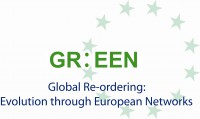Representation and Authority in International Organizations

When governance is increasingly lodged at the level of regional and global networks, it becomes important to identify and assess mechanisms that enable the ruled to hold rulers to account. When democratic and legal mechanisms to promote accountability are found to be absent at the level of the state, international organizations can be said to be characterized by an accountability gap, which may – and often does – result in a legitimacy gap.
In this Policy Brief, I analyse the evolution of the authority of the Secretariat of the United Nations (UN) and show that this bureaucratic body has vastly expanded its authority. It has done so through claims to represent ation of the “international community.” I use this case to reflect more broadly on how the myriad actors engaged in global governance can establish the authority to govern without there being concomitant accountability mechanisms.

